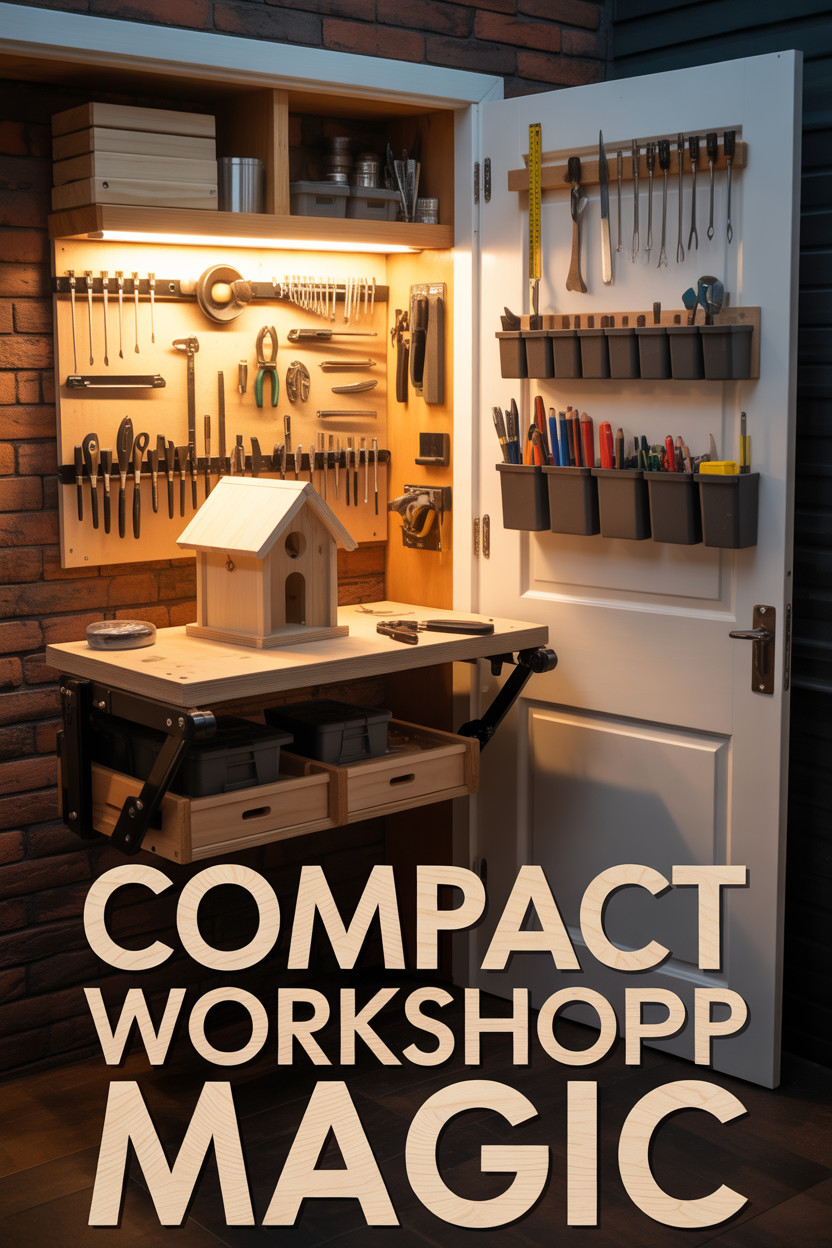Ultimate Guide to Carpenter Storage: Organizing Your Workshop for Maximum Efficiency

Let’s face it—every carpenter has experienced that maddening moment of digging through piles of stuff while muttering, “I JUST had that chisel!” An organized workshop isn’t just nice to have; it’s practically therapy for your woodworking soul! Finding the right tool at the right time doesn’t just keep your projects flowing smoothly—it prevents frustration when a simple task turns into a treasure hunt. Whether you’re a pro who makes sawdust for a living or a weekend warrior whose spouse has stopped believing your “quick project” timelines, this guide will revolutionize your workspace!
Workshop Storage Fundamentals

The cornerstone of any functional woodworking shop isn’t fancy tools—it’s knowing where those tools actually are!
A well-organized workspace saves your sanity, your time, and prevents your precious tools from meeting untimely deaths at the bottom of cluttered drawers.
Mix fixed and mobile storage, keeping everyday tools within arm’s reach while storing less frequently used items in secondary storage.
Think of your workshop like a kitchen—you need zones! Create a cutting area, an assembly station, a finishing section, and dedicated storage space.
This approach lets you customize storage solutions while giving each tool a proper home where it belongs.
Wall-Mounted Tool Organization Systems

That blank wall space is valuable real estate for tool storage!
Pegboards transform your tools into a beautiful wall display that makes it immediately obvious when something is missing.
Pro tip: trace outlines behind each tool to create a visual system that encourages proper tool return.
Wall-mounted cabinets protect your precious tools from the eternal dust storm that is a working shop.
For bulky power tools, sturdy wall mounts prevent them from creating dangerous tower formations on your workbench.
French cleats are remarkably versatile wall systems—adaptable and reconfigurable. They use angled wood strips to support various holders that can be rearranged without drilling new holes every time you reorganize.
Mobile Storage Solutions

Tool carts bring your frequently used items right to you, eliminating unnecessary trips between workstations.
Look for carts with locking wheels, multiple drawers, and a sturdy top surface that doubles as a convenient place for small parts or a beverage.
Rolling cabinets act as faithful workshop sidekicks, following you around with all your essential gear.
Many woodworkers create the ultimate combination by pairing a stationary chest with a rolling cabinet underneath—stationary storage above with mobility below.
Modular storage systems let you reconfigure your workshop setup, connecting and separating units as your project needs evolve.
These flexible systems grow with your workshop and adapt to changing requirements.
Proper Lumber Storage Solutions

We’ve all played that terrifying game of Jenga with lumber leaning against the wall until physics inevitably wins.
Proper lumber storage isn’t just about organization; it prevents valuable boards from warping, twisting, or becoming dangerous obstacles.
Vertical storage racks maximize limited floor space while letting you see your entire wood inventory at a glance.
They’re perfect for shorter boards and sheet goods that would otherwise become expensive trip hazards.
Horizontal lumber racks provide essential support for longer boards to stay straight and true.
The most efficient workshops feature both styles—each serves a different but essential purpose!
If you have high ceilings, ceiling-mounted racks can store those “I might need this someday” boards that are too valuable to discard but not currently needed.
Small Workshop Storage Solutions

Working in a compact space requires creative solutions.
Fold-down workbenches and wall-mounted tool stations can appear when needed and disappear when they’re not—maximizing limited square footage.
Door organizers take advantage of that often-forgotten space that’s perfect for measuring tools and writing implements.
Nesting containers and collapsible sawhorses save space when stored but are ready for action when duty calls.
Magnetic strips mounted under shelves can hold metal tools without consuming additional space.
In truly tight quarters, everything needs to serve multiple purposes. A workbench with built-in storage drawers isn’t just smart—it’s essential!
Stackable tool boxes can transform from compact storage to exactly what you need for today’s specific woodworking tasks.
Dust Collection and Waste Management

Sawdust gets everywhere, including places you didn’t even know existed.
Wall-mounted dust collection systems with proper ductwork keep floors clear while improving air quality.
Dedicated bins for different types of workshop waste make cleanup efficient and organized.
Those wood scraps might be perfect for your next small project or winter kindling—sort them by size for easy access.
For workshops where space is limited, portable dust collectors can move between stations as needed.
A clean workshop is a safe workshop—regular dust management prevents slips and respiratory issues.
Tool Protection Strategies

Your tools represent both a significant financial investment and countless hours of justification to your family.
Proper storage protects them from their natural enemies—humidity, dust, and unauthorized borrowing.
Humidity control is critical unless you want your metal tools developing rust. Silica gel packets in drawers and cabinets absorb excess moisture.
Temperature fluctuations can damage precision tools and ruin adhesives. If climate-controlling your entire shop isn’t possible, consider a smaller insulated cabinet for your most valuable tools.
Tool wraps and covers provide an extra layer of protection for items that don’t see daily use.
Proper cord storage prevents frustrating tangles and extends the life of your power tools.
DIY Storage Projects

There’s something wonderfully satisfying about building storage for your woodworking tools using woodworking tools!
French cleat systems are simple to build but infinitely customizable for your specific needs.
Custom drawer organizers made from scrap wood ensure perfect fits while repurposing materials you already have.
A rolling lumber cart with dividers keeps everything organized while remaining mobile.
Wall-mounted tool racks don’t just store your tools—they display them like the investments they are, keeping edges protected while making them easily accessible.
Modular storage cubes can be customized for exactly what you need and expanded as your tool collection grows.
Digital Organization Tools

Digital organization can be a woodworker’s secret weapon in maintaining workshop order.
Simple spreadsheets track model numbers, purchase dates, and warranty information—which proves invaluable when tools need repair.
Comprehensive apps let you photograph your tools and scan receipts, creating a digital inventory of your workshop.
QR codes attached to storage locations can link to assembly instructions or maintenance information for complex tools and jigs.
This system is particularly helpful for shared spaces where information needs to be accessible to multiple users.
Digital tracking also helps identify underutilized tools, allowing you to make informed decisions about future purchases.
Portable Storage for Job Sites

On-site work requires specialized portable storage solutions.
Tool bags with multiple compartments keep things organized while preventing loss between the truck and the job site.
Look for bags with waterproof bottoms because job site surfaces are rarely clean and dry.
Stackable systems like Systainers change configuration based on what you need and lock together for easier transport.
These systems stack efficiently in vehicles, maximizing available space.
Vehicle organization systems turn ordinary vans into rolling workshops with drawer systems and comprehensive shelving units.
A well-organized vehicle means less time searching and more time working on actual projects.
Hardware Organization Systems

Clear plastic bins with dividers keep fasteners visible and organized, preventing emergency hardware store runs mid-project.
Label everything clearly, including sizes and types—your future self will appreciate the detail.
Wall-mounted jar systems, where containers attach to lids screwed into boards, make excellent use of vertical space while keeping contents visible.
Magnetic strips can temporarily hold metal parts during projects, saving you from losing small components.
Consider using a color-coding system for different hardware types. It’s remarkable how quickly your brain learns “blue = woodscrews” and “red = machine screws” without conscious thought!
Consistent organization systems reduce project time and frustration significantly.
Budget-Friendly Storage Options

Repurposed kitchen cabinets make excellent workshop storage and can often be found free from renovation projects.
Five-gallon buckets with tool organizers that fit around the rim are inexpensive but highly functional.
PVC pipe sections mounted to walls create perfect holders for long-handled tools—simple, affordable, and surprisingly durable.
Coffee cans can be labeled and mounted under shelves using their lids for small hardware storage.
Wooden pallets can transform into wall organizers or lumber racks with minimal modification.
Even simple cardboard dividers in drawers can organize small tools effectively until you can invest in more permanent solutions.
Remember that function matters more than appearance in a working shop—practical solutions win over pretty ones every time.
Workshop Safety and Maintenance

Proper storage isn’t just about convenience—it’s about safety.
Heavy items should always be stored at waist height or lower to prevent injuries.
Ensure cabinets are properly anchored to walls to prevent tipping hazards.
Create specific spots for safety equipment like eye protection and respirators where they’re easy to access.
Store flammable finishes and solvents in appropriate fire-resistant cabinets, away from heat sources.
Check drawer slides and cabinet hinges quarterly, lubricating as needed to prevent failures.
Clean storage areas regularly to prevent dust buildup that can affect tools and air quality.
Schedule an annual workshop reset—remove everything, clean thoroughly, repair as needed, and reorganize based on current usage patterns.
Plan for expansion from the beginning with modular systems that can grow with your needs.
Document your storage systems with photos or diagrams to maintain consistency as your workshop evolves.
With these storage strategies, your workshop will transform from a place of frantic searching to a woodworking sanctuary where creativity flows smoothly. The time invested in organization pays dividends in productivity, project quality, and reduced frustration. Your future self—with all fingers intact and projects completed on time—will thank you!









